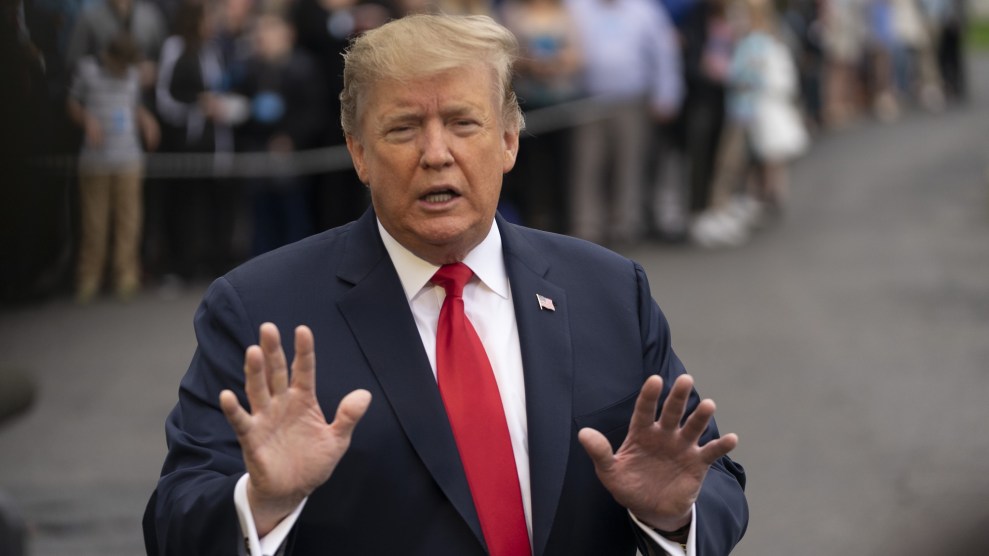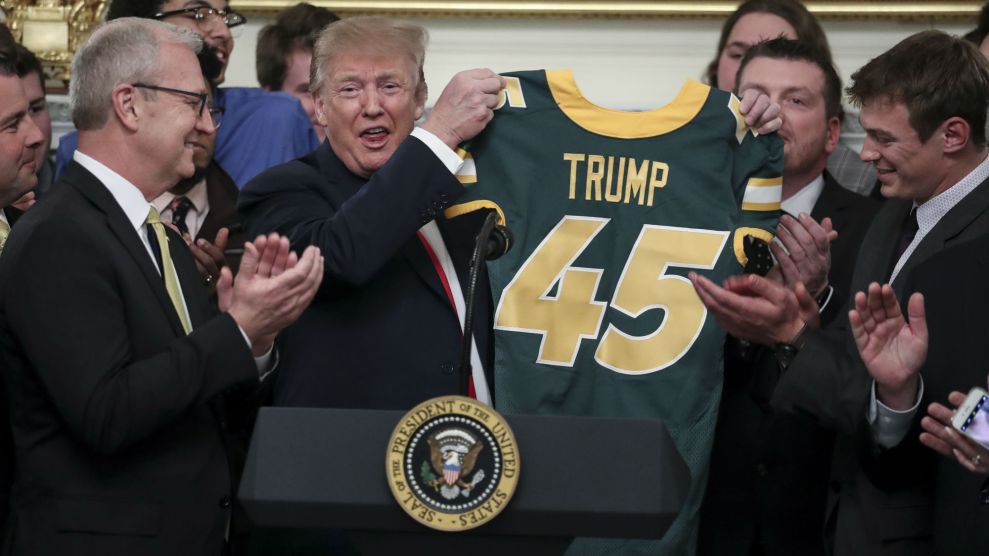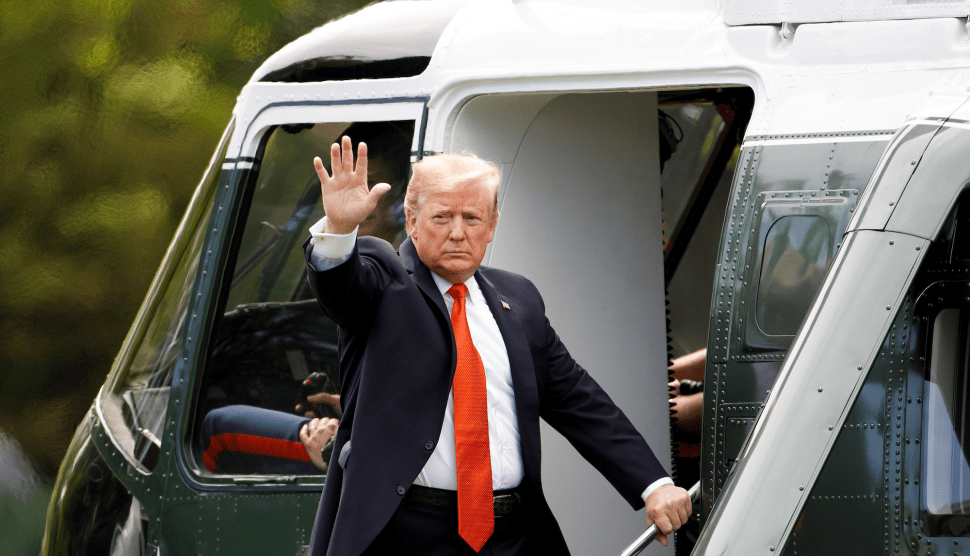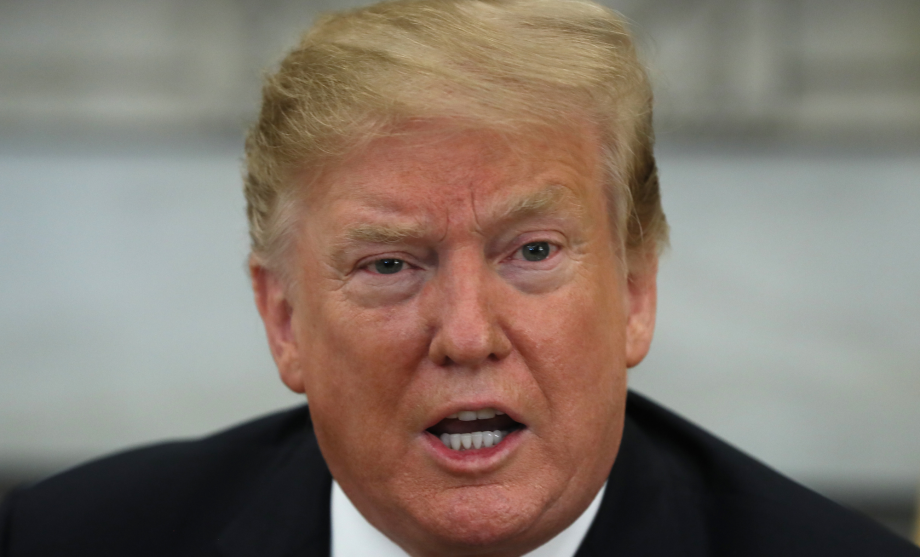
Douglas Christian/ZUMA
The University of Virginia’s men’s basketball team on Friday declined to visit the White House, forgoing a tradition often bestowed on championship sports teams.
“We have received inquiries about a visit to the White House…We would have to respectfully decline an invitation,” the team’s coach, Tony Bennett, said in a statement on Twitter that cited the schedules of several players.
"We have received inquiries about a visit to the White House. With several players either pursuing pro opportunities or moving on from UVA, it would be difficult, if not impossible to get everyone back together. We would have to respectfully decline an invitation.” – Tony Bennett
— Virginia Men's Basketball (@UVAMensHoops) April 26, 2019
The UVA campus is located in Charlottesville, Virginia, the site of a 2017 white supremacist rally that turned deadly when a neo-Nazi drove his car into a group of counter-protestors, killing one—Heather Heyer. Trump at the time said that there were “very fine people on both sides” of the rally, and again this past Friday he defended those comments, saying that he’d expressed himself “perfectly.” Trump told a group of reporters that his “very fine people” comment had been referring to people who attended the rally to protest the removal of the monument to Confederate general Robert E. Lee, who Trump called “a great general.” Earlier in the week, Trump’s comments in the wake of Charlottesville were back in the news after Joe Biden criticized them in a video announcing his bid for president.
Bennett and the UVA basketball team made no reference to politics in their decision to decline a possible invitation to the White House—and it’s unclear if a formal invitation had yet been extended to the team. The Trump White House has made it a pattern to formalize invitations to sports teams only when it is clear that the team will accept—an increasingly rare occurrence of what was once a bipartisan presidential tradition. Trump has, for instance, withdrawn White House visit invitations to both the Golden State Warriors and the Philadelphia Eagles after members of their teams expressed qualms about visiting the White House. (The Warriors instead visited Barack Obama’s office when they visited DC earlier this year.) The president has also shown a tendency to favor athletes who have expressed support for him in the past.
The Warriors choice quickly became the de facto stance of professional basketball players, with LeBron James throwing his support behind the team that had defeated him in the championship the prior year, and praising Warriors star Stephen Curry for his public statement declining to visit the White House.
U bum @StephenCurry30 already said he ain't going! So therefore ain't no invite. Going to White House was a great honor until you showed up!
— LeBron James (@KingJames) September 23, 2017












